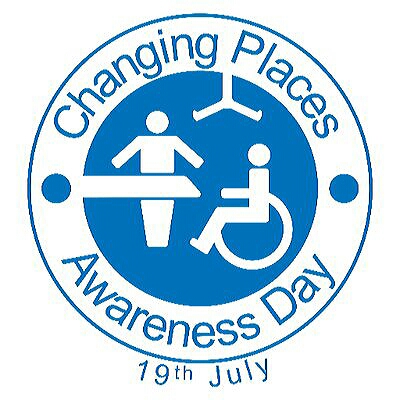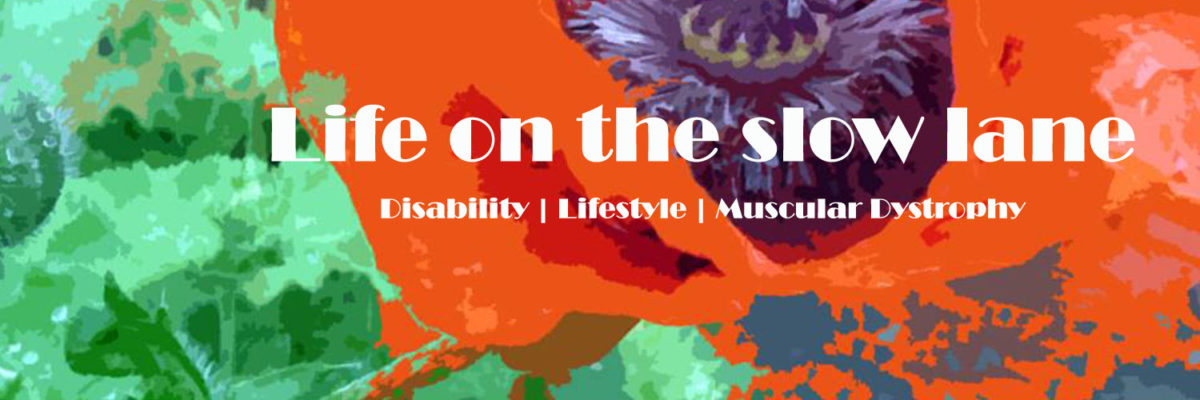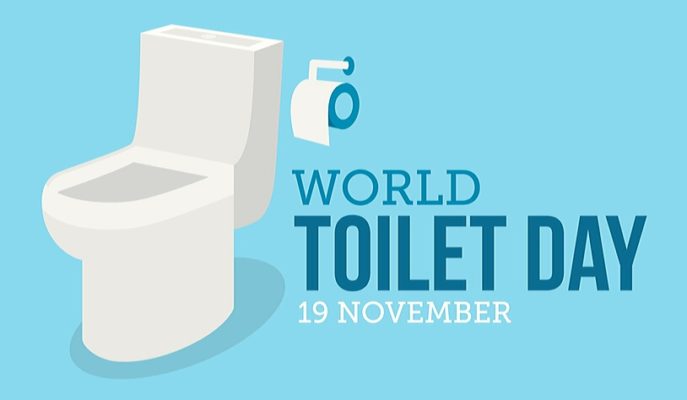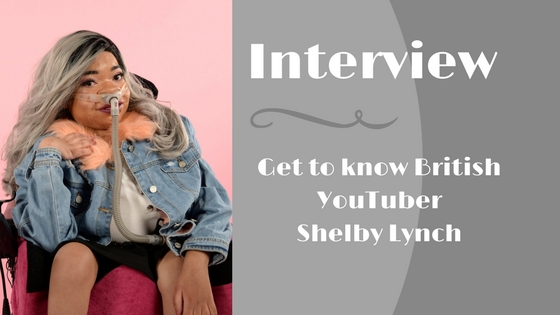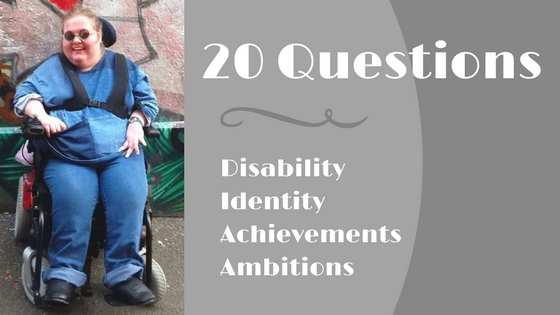Rebecca who has cerebral palsy
I recently got chatting with a lovely lady called Rebecca, who contacted me after reading my blog.
Rebecca, who has cerebral palsy, is high-achieving, ambitious and incredibly interesting to talk to.
Consequently, I thought it would be beneficial for you guys to learn more about Rebecca, her views and how she manages life with a physical disability…
1. What is your disability and how does it affect you?
I have Ataxic Cerebral Palsy, which affects my four limbs and means that I use an electric wheelchair for getting around both inside the house and for outside activities in my day-to-day life. I also have a visual impairment called Nystagmus, which prevents me from going out unaccompanied as I sometimes struggle to see steps and kerbs in the street. My disability affects my life as I require 24 hour care.
2. What is the worst thing about living with your disability?
The worst thing is the stigma and negative attitudes that still surround disability. For example, strangers often make assumptions about my mental capabilities and underestimate my intelligence. However, I am learning to become resilient through my experience of this, and have developed coping mechanisms.
3. What, if any, are the positives to having a disability?
The free carer ticket to gigs/festivals/theatre/talks is a bonus! I also value my electric chair and the feeling of acceleration when I drive fast. On a more serious note, I view the fact that I feel I have a unique perspective on the world as a result of my disability as a positive. I have a greater tolerance of difference due to the empathy and understanding that my disability has taught me.
4. How do you feel about the term ‘disability’? Do you refer to yourself as having a disability or do you prefer another term, such as differently abled?
I used to physically jump at the word ‘disability’ as well as ‘wheelchair’ and ‘handicap’. This was because hearing myself being described as disabled hit home the fact that other people viewed and labeled me in this way. It made me feel as if my disability was my main or only attribute. This all changed when I attended counseling sessions in my early 20’s, where I was encouraged to unpack the meaning of these words and confront why they prompted a physical reaction from me. It is still the case that disability will never be my favourite word, but I’m now comfortable enough to describe myself in that way to others.
5. Do you feel under-represented in the media? If so, what changes would you like to see?
I can understand why some people would feel under-represented, and I agree changes do need to be made. But in my opinion, these changes reside in discussion, ideas and inclusion rather than purely exposure.
6. Are you a leader or a follower?
I used to be a follower, afraid to voice my opinions. Now I am comfortable taking the role of the leader in certain social situations, i.e. with less confident friends I am able to guide the conversation to allow people to be heard. As well as this, I hope to lead with my ideas surrounding disability ethics and the research I am doing in this particular area.
7. Optimist, pessimist, realist or idealist?
I live in the most realistic way possible so that I am most connected with reality and grounded in my thoughts. To be too pessimistic can prevent us from progressing, whereas being overly optimistic can also be counterproductive to personal growth.
8. Are you easy going or high-maintenance? Would those who know you best agree?
I would say that I am easy going because I have learnt how to balance my own well-being so as not to allow myself to become too stressed out. Those who know me best would probably agree, but I imagine they would claim that I’m more high-maintenance when I have an important deadline to meet!
9. Are you more of an introvert or an extrovert?
This really depends on whom I am with. In my professional career as a counsellor it is my responsibility to be the facilitator who steers the conversation, and this doesn’t allow for me to be introverted. However I can still become shy around people that I struggle to connect with on a deeper level.
10. Are you more creative or logical?
I am more creative in my thoughts and my writing and in the way I can construct an argument in a debate.
11. You are currently studying Philosophy at Cambridge University – why did you choose that subject in particular?
I have been fascinated by the world around me from a young age with my intuitive questioning of values and beliefs. This then developed when I embarked on a short course to find out more about the subject, which then inspired me to study philosophy at a higher level. What I like about philosophy most is that it’s a never-ending endeavour; there is always more to question, learn and explore. Philosophy can help to find new ways to think about old problems and with considering things from different perspectives, to overcome many of the hurdles that we encounter in our everyday lives.
12. What difficulties have you faced whilst at University, resulting from your disability?
Having to deliver presentations has been difficult for me, but luckily the University allowed me adapt my assessments, and have been really accommodating. One of my personal assistants delivered this presentation and I was able to answer class questions afterwards. I also require a personal assistant to write down my thoughts, and this can sometimes take a long time because conversations can be misinterpreted. For this reason, I always request the option of extra time because it can take longer for me than for an able-bodied student to formally express my thoughts in an assignment.
13. What do you hope to do following completion of your degree?
I am hoping to continue studying and develop my qualifications, embarking on a postgraduate course that combines philosophy and mental health.
14. Are you the type of person who always knew, from an early age, what job you wanted to pursue?
Yes, from about the age of 10 I remember hearing of people’s difficulties and wanting to help them by giving them advice at the time! This then developed into aspiring to become a qualified counsellor.
15. What is your ultimate ambition in life?
To gain as much knowledge and wisdom as possible to discuss new ideas and create meaningful change.
16. Bucket list: Can you list your top 5 goals?
I took some time to contemplate this question because I’ve never had a bucket list as such, but I’ve managed to come up with 5 things that are important to me:
1. Experience something daring in nature – i.e. wheelchair tree-top climbing
2. Using my counseling skills to change someone’s life for the better
3. Learn more about the psychiatry side to mental health
4. Finish reading a book in its entirety!
5. Finish my dissertation
17. If you won the Euromillions, what would you do with the money?
I would first of all build my own custom-made cabin in the forest. I would also double my betting stakes. (I do now and again enjoy a little flutter on the horses and football!) Although overall I am pretty content with my life how it is now.
18. Where is your favourite place in the world?
I really love spending time by the weeping willows in Newnham, Cambridge. These trees overlook the River Cam which makes it a very tranquil spot, where I feel safe and at peace.
19. Do you believe in ghosts, spirits and the like?
I have heard many stories about spirits and the afterlife that have led me to believe, or at least be open to the idea.
20. If a pill existed that could completely cure you of your disability, would you choose to take it, and why?
No, simply because I wouldn’t be me any more. And I wouldn’t have experienced the same things if I had been able-bodied. The only thing I would perhaps alter is the fact that I don’t get to spend much time on my own.
I’d like to thank Rebecca Sherwood for taking the time to answer my questions.
What do YOU think of Rebecca’s responses? how would YOU answer these questions? Leave and comment and let me know!
If you found this blog post interesting, please do share so that others can see it too – thank you!
